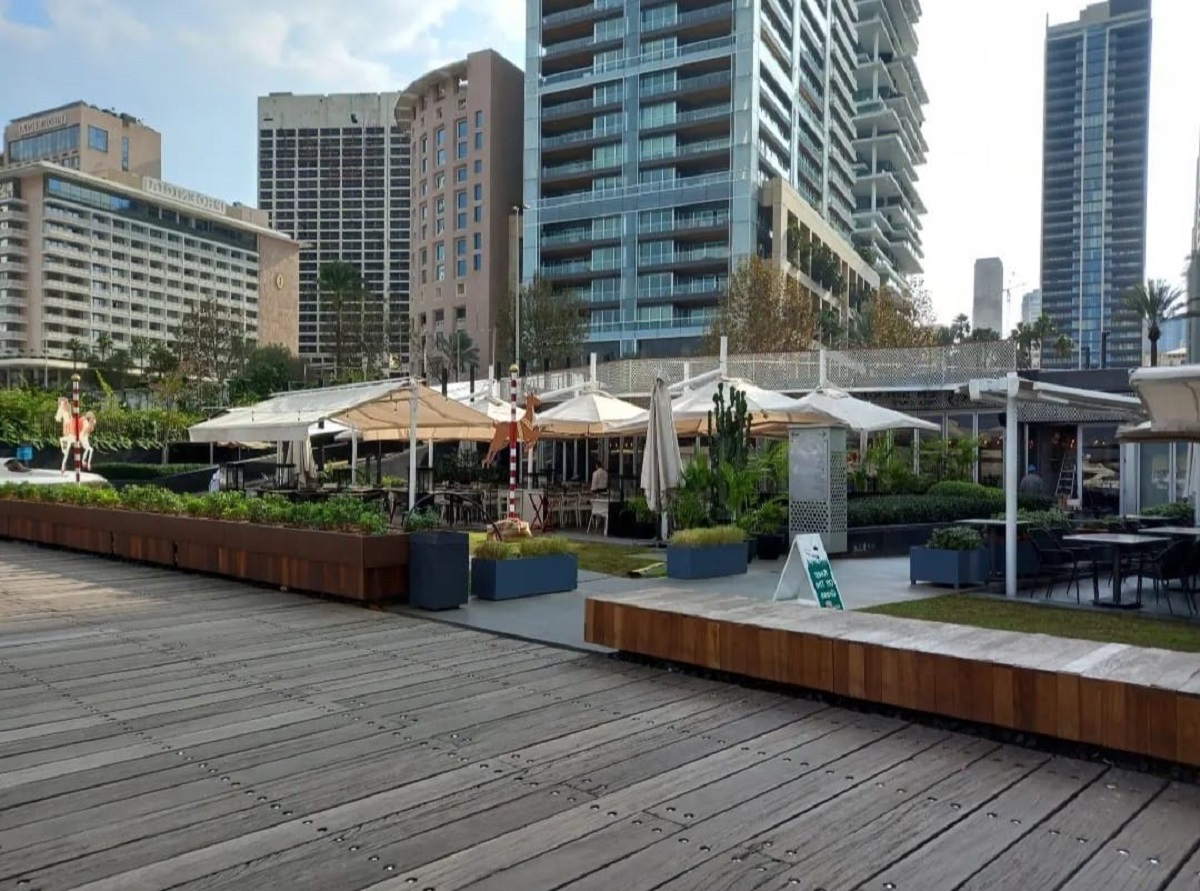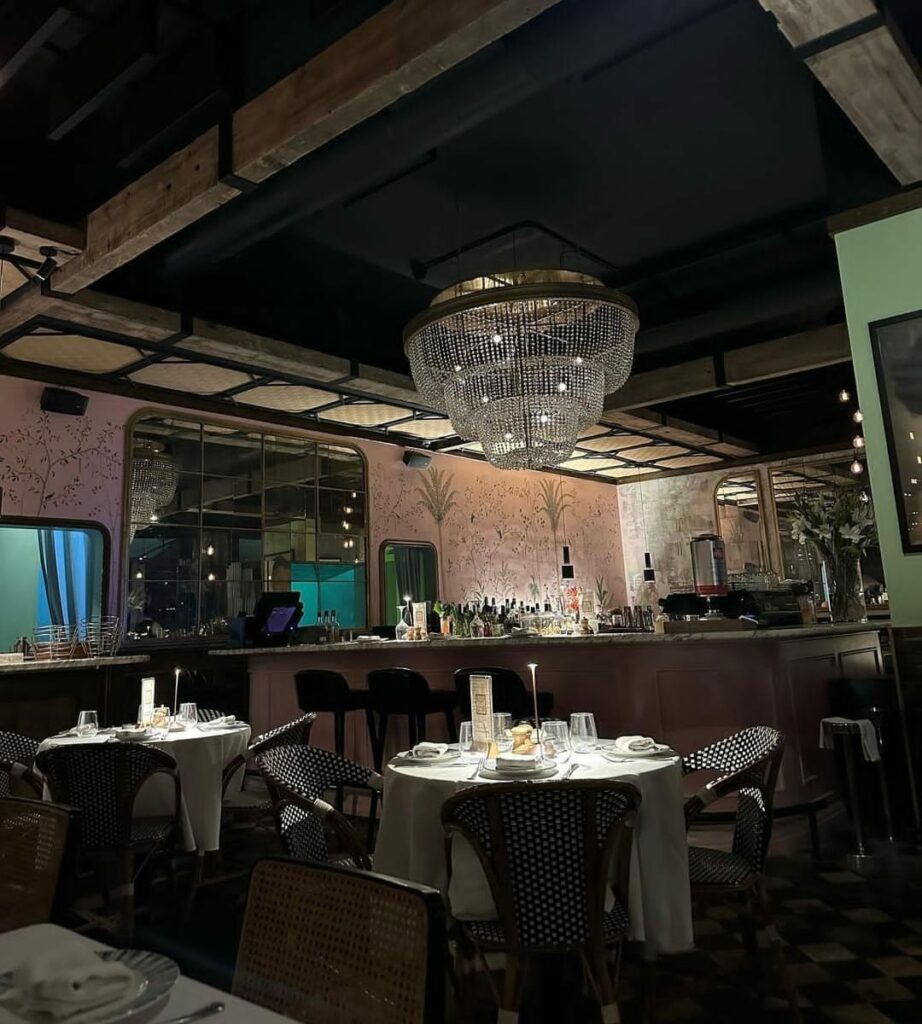
Amid Lebanon's turmoil, entrepreneurs are launching innovative culinary projects, including high-end restaurants and unique cafes, showcasing their commitment to investing in their nation's future.
As the Lebanese economy continues to struggle, observers are surprised by the growing number of new restaurants. Despite various challenges, many Lebanese remain optimistic and are committed to investing in their country. Financial experts are keen to uncover the motivations driving this surge in investment within the restaurant industry.
“Lebanon enjoys advantages that are not found in neighbouring countries with its captivating spirit that contains a mixture of dialects, languages, vitality and scenes with its picturesque nature and diverse monuments,” Rita Dergham, a business adviser in the Syndicate of Owners of Restaurants, Cafes, Night-Clubs and Pastries in Lebanon told NOW.
The combination of these elements according to Dergham, make the small Mediterranean country an bustling tourist destination.
While the majority of restaurants generally relies on expatriates and foreigners, Dergham emphasizes that today, dependence is also on the country’s residents, irrespective of socio-economic status.
Success in the midst of crisis
Lebanon’s current state has exacerbated its reliance on foreign funds brought in through remittances and opportunities abroad, to the extent that a sizeable 50 percent of Lebanon’s total economic output is funded by the steady stream of transfers from the Lebanese diaspora.
Lebanon’s current state has exacerbated its reliance on foreign funds, brought in through remittances and opportunities with companies abroad. This predicament has forced the country to become heavily dependent on financing from its global network, to the extent that a sizeable 50 per cent of Lebanon’s total economic output is funded by the steady stream of transfers made by the Lebanese diaspora.
Ziad Halawi, Assistant Professor of Economics at Notre Dame University, addressed the criticisms aimed at the thriving restaurant industry amidst Lebanon’s economic challenges in an interview with NOW. While some argue that spending on dining might be inappropriate given the financial difficulties, Halawi suggests that individuals have shifted their priorities— losing faith in savings and moving towards directly spending their cash. As a result, food and drink establishments have experienced a surge in customers.
Furthermore, Halawi notes that many Lebanese traditionally traveled during holiday periods. However, with salaries diminishing, this option has become unfeasible for a significant part of the population. Consequently, an increasing number of families are choosing to spend their money within Lebanon. Given the circumstances, the common practice of saving money has been set aside, with many now prioritizing a lifestyle centered around spending.

By Aya Raidan, NOWLEBANON
These developments have led to a significant boom in domestic tourism, with all sectors, including new entertainment venues, restaurants, and nightlife spots, expanding their offerings and drawing a substantial number of investors.
In the dining scene, a remarkable trend has emerged. Despite Lebanon’s persistent crisis, a significant influx of new restaurants is sprouting up across the nation, from Batroun to Beirut. This trend has not only persisted but appears to have accelerated. Illustrating this growth, 30 new eateries have recently opened in the Beirut areas of Mina Al-Hosn, Marfa, and Saifi, catering to the city’s food enthusiasts.
Several other restaurants are currently in the planning phase and are anticipated to open gradually, just in time for the forthcoming summer season of 2024. These establishments are presently undergoing workshop procedures to prepare for their opening.
According to Khaled Nozha, Vice President of the syndicate for restaurants, cafes, and patisseries, Lebanese investors persist in recognizing the national potential amid the economic crisis, demonstrating their trust in the country. Consequently, the grounds for growth and investment in the food services sector are amplified.
A moment of opportunity
Lebanon’s flourishing tourism industry presents a promising opportunity for investors, particularly as the country attracts expatriates from various parts of the world. With approximately 400,000 expats in Arab nations and another 250,000 residing in Africa, these individuals play a significant role in driving the restaurant sector due to their frequent visits to Lebanon and substantial purchasing power.
Nozha highlighted that the restaurant industry has effectively enticed back around ten thousand skilled professionals who had left Lebanon during the crisis, thanks to its assertive efforts. These industry experts are now employed in the country’s newly established eateries.
Beirut’s waterfront is experiencing a resurgence, with plans underway to reopen large nightclubs and existing restaurants and nightclubs seeing continued patronage. Despite prevailing challenges, longstanding investors in this sector persist in their investments, contributing to the ongoing trend.
Mohamad Fakih, owner of multiple restaurants, shared his plans to launch a luxury seafood dining experience in Beirut’s central hub. Emphasizing the complexities of restaurant investment due to reliance on expatriate returns and Lebanon’s promotional ties, Fakih aims to blend investment objectives with his passion for the restaurant industry. He looks forward to unveiling innovative concepts at his new establishment in the summer of 2024. “We will be recruiting talented Lebanese chefs and professional individuals in the hospitality sector who will serve a special menu with their culinary skills,” Fakih told NOW.
All experts interviewed in this piece agreed that customer flow is slower during weekdays, with peak business periods occurring on weekends and holidays. However, ongoing security concerns due to rising tensions on South Lebanon borders significantly impact Beirut’s capacity to welcome visitors. Despite this setback, Fakih remains hopeful that the situation will normalize for a successful summer season, recapturing the tourist influx of previous years.
Rodayna Raydan is a Lebanese-British journalist. You can follow her on Twitter @Rodayna_462
The views in this story reflect those of the author alone and do not necessarily reflect the beliefs of NOW.








